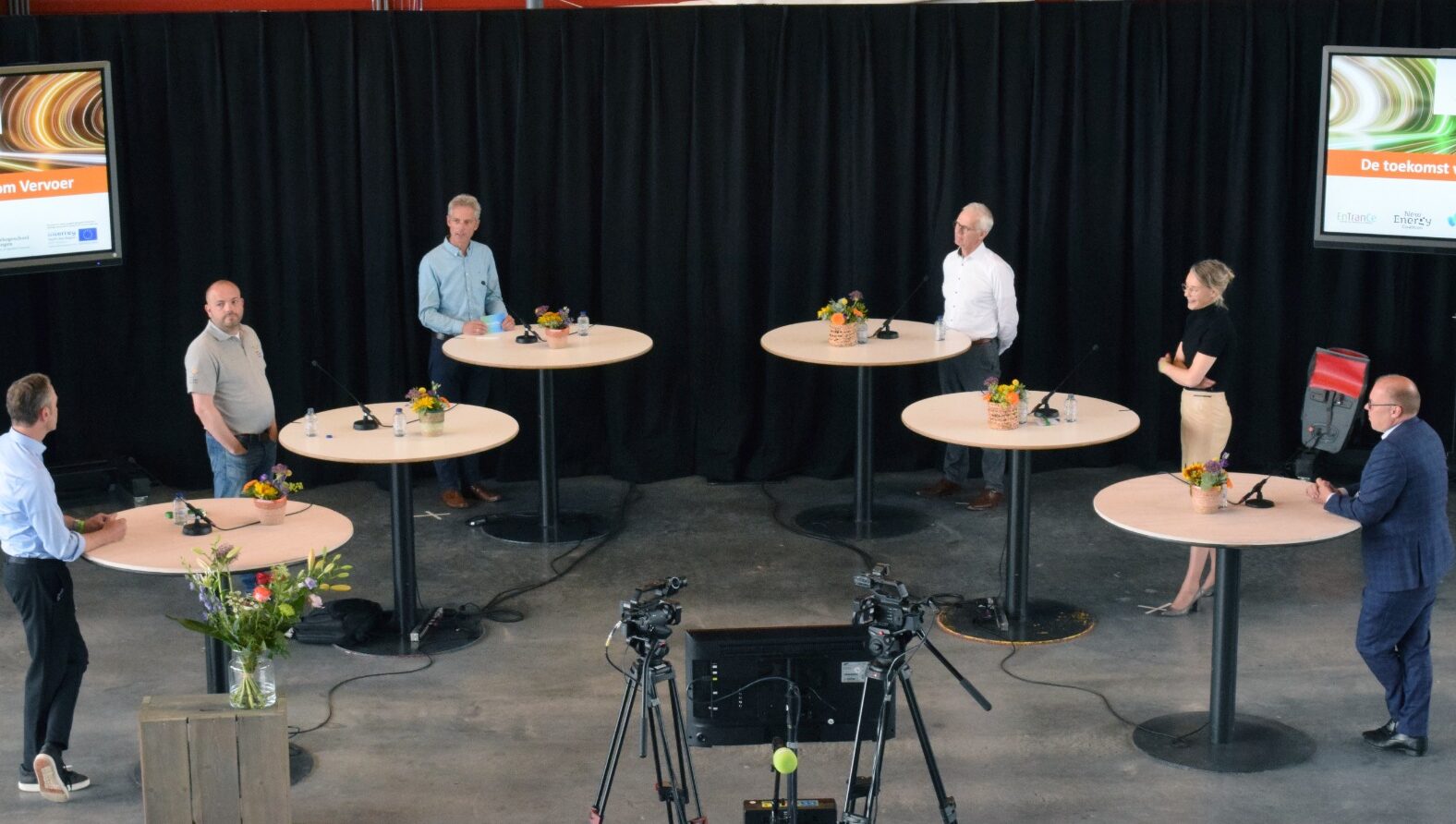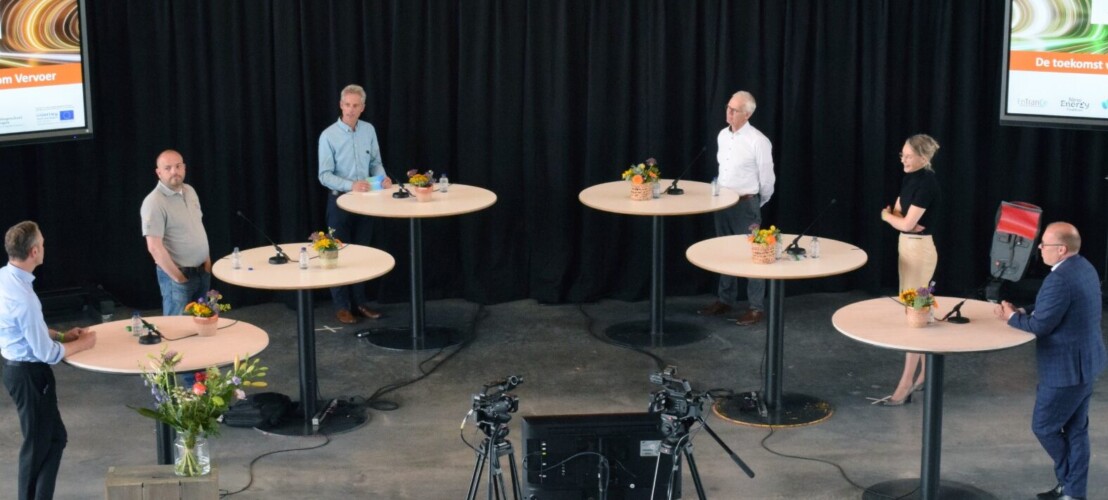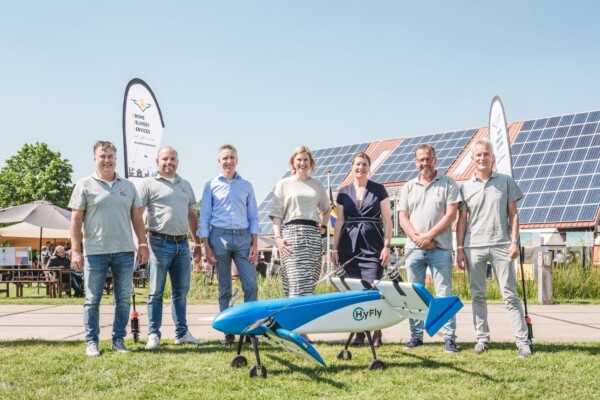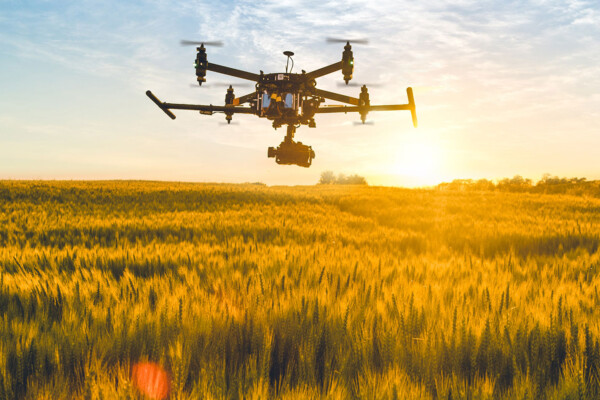‘Autonomous transportation is in essence merely a veiled way of cutting costs.’ By posing daring arguments like this, five panellists with an expertise within different transportation modalities were invited to the New Energy Forum to discuss the future of autonomous transportation. What are its biggest challenges? And is the whole concept of autonomous transportation even viable?
Autonomous transportation: a bright future, yes or no?
The Northern Netherlands proves to be the European frontrunner regarding autonomous transportation testing: tests are conducted on the road and water as well as by rail and air. The idea behind these efforts is to enhance development by gaining as much experience as possible. Autonomous vehicles offer – at least on paper that is – many advantages, yet also a lot of challenges.
Chaired by Frans Hamstra of the @North regional partnership regarding autonomous transportation Jorrit Kuipers (robotTUNER), Egbert Swierts (DroneHub GAE Foundation), Henk Zwetsloot (Groningen Seaports), Yvonne Dubben (Arriva) and Patrick Potgraven (Directorate-General for Public Works and Water Management) engaged in a debate on 24 June 2021. An impression of this debate on autonomous transportation is given below following a number of the posed arguments.
‘A veiled way of cutting costs’
Hamstra starts the day off with a quite daring argument: autonomous transportation is a veiled way of cutting costs because it saves job costs. Zwetsloot retorts that in shipping it is often difficult to find crews, which speaks for autonomous transportation. Arriva, Dubben emphasises, is focused on other objectives than cutting costs all together such as: “Punctuality, sustainability, capacity increase (because the potential number of trains has increased) and opening up rural areas with no current public transportation.” Kuipers and Swierts finally point out that autonomous transportation also can serve societal objectives such as creating car-free city centres as well as medicine and organ transportation services by drones.
‘People do not care for it’
Claims regarding noise pollution by drones and accidents with self-driving cars indicate that travellers and local residents in fact don’t care for autonomous vehicles at all. The panel members all agree: all parties involved should be heard, communication is key. When handled properly, people will have no problem with it at all – as for instance became clear, from tests with driverless trains and a self- driving shuttle between the new hospital in the small city of Scheemda and its most near bus stop. Potgraven expects that freight transportation is liable to make faster progress due to the fact that freight-accidents have a lesser general impact: “A human life is priceless, a container filled with shoes is just collateral damage.”
‘Autonomous transportation lacks a business model’
By referring to labour intensive shuttles, pods and drones Hamstra poses the argument that autonomous transportation lacks a business model. A quick check among the panel members shows that proper business models are feasible for all modalities. Even more so when a broader societal perspective is taken beyond merely the financial aspects, such as for instance the transportation of medicine and organs by drones. Potgraven: “At the very least a business case should be feasible for all the ‘dangerous, dirty and dull’ kind of jobs, because these are simply the jobs nobody wants to do.”
‘The Northern Netherlands should not innovate just yet’
Posed argument: the Northern Netherlands is currently really focusing on autonomous transportation, yet it should wait till the rest of the country catches up and then jointly continue to innovate, because this isn’t something that can be done on your own. Dubben quite neatly sums up the panel’s unanimous opinion in this matter: “Certainly not: all necessary ingredients to go forward are available here in the north such as a lot of space, smart people as well as all modalities, including even the Hyperloop soon. We should continue and pave the way for the rest of the Netherlands.”
Please check the full version of the panel discussion on autonomous transportation below.
About the New Energy Forum
On Thursday 24 June 2021 a brand new, annual festival on energy transition and sustainable mobility took place: the New Energy Forum. During this hybrid festival the chairman of the day – Diederik Jekel – introduced visitors and viewers to the smart new world of energy and mobility. This festival – an initiative of Hive.Mobility, the EnTranCe Centre of Expertise Energy (of the Groningen Hanze University of Applied Sciences) and the New Energy Coalition – has been developed to showcase the most recent developments, share knowledge and offer inspiration regarding autonomous transportation. All of this year’s programme segments can be viewed via www.newenergyforum.nl.
This project is co-funded by the EU-project ART-Forum (Interreg).





